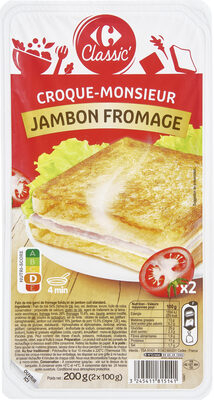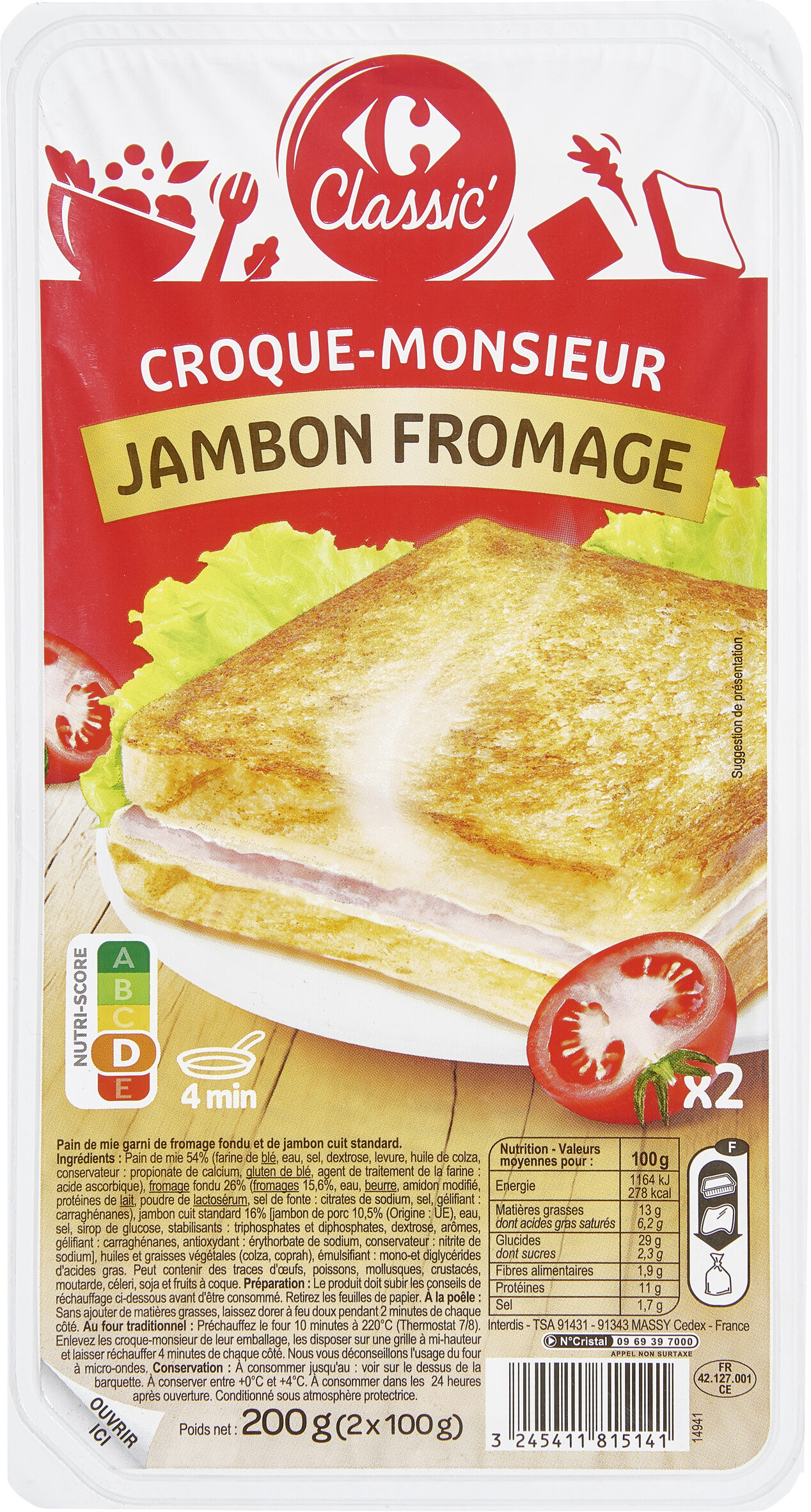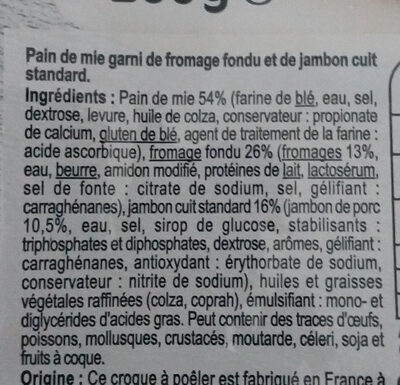Croque - monsieur jambon fromage - Carrefour - 200 g
This product page is not complete. You can help to complete it by editing it and adding more data from the photos we have, or by taking more photos using the app for Android or iPhone/iPad. Thank you!
×
Some of the data for this product has been provided directly by the manufacturer Carrefour.
Barcode: 3245411815141 (EAN / EAN-13)
Common name: Pain de mie garni de fromage fondu et de jambon cuit standard.
Quantity: 200 g
Packaging: Plastic, Fresh, Tray
Brands: Carrefour
Categories: Snacks, Salty snacks, Appetizers, Meals, Sandwiches, Toasted ham sandwich topped with grated cheese
Labels, certifications, awards:
Sustainable, Sustainable Palm Oil, 2016 Nutrition labelling experiment, Green Dot, Made in France, Nutriscore, Nutriscore experiment, Nutriscore experiment Grade D
Origin of the product and/or its ingredients: Ce croque à poêler est fabriqué en France à partir de viande de porc origine UE et de fromage fondu dont le lait est origine UE.
Producer: Fabriqué en France par EMB 42 127 pour Interdis.
Traceability code: FR 49.204.001 CE - Mesnil-en-Vallée (Maine-et-Loire, France), EMB 49204 - Mesnil-en-Vallée (Maine-et-Loire, France), FR 42.127.001 CE - Mably (Loire, France)
Stores: Carrefour Market, Carrefour, carrefour.fr
Countries where sold: France
Matching with your preferences
Other information
Other information: Poids net : 200g e "ouvrir ici" picto 2P picto 4 min à la poêle
Preparation: Réchauffez suivant les conditions de préparation avant de consommer le produit. Retirez les feuilles de papier. À la poêle : Sans ajouter de matières grasses, laissez dorer à feu doux pendant 2 minutes de chaque côté. Au four traditionnel : Préchauffez le four 10 minutes à 220°C (thermostat 7/8). Enlevez les croque-monsieur de leur emballage, disposez-les sur une grille à mi-hauteur et laissez-les réchauffer 4 minutes de chaque côté. Nous vous déconseillons l'usage du four à micro-ondes.
Conservation conditions: À consommer jusqu'au / N° de lot : voir la date indiquée sur le dessus de l'emballage. À conserver entre +0°C et +4°C. Conditionné sous atmosphère protectrice. À consommer dans les 24 heures après ouverture.
Customer service: Service consommateurs Carrefour - Interdis - TSA 91431 91343 MASSY CEDEX – France
Report a problem
Data sources
Product added on by sebleouf
Last edit of product page on by org-carrefour.
Product page also edited by carrefour, date-limite-app, driveoff, ecoscore-impact-estimator, fabi2, feat, kiliweb, openfoodfacts-contributors, packbot, quechoisir, roboto-app, tacite, xaviouche76, yuka.U3AwcUlxa2JtK0lqaWZaaDdCcnQ2TXBFMVk3MWNYS3hHdEF3SUE9PQ.













